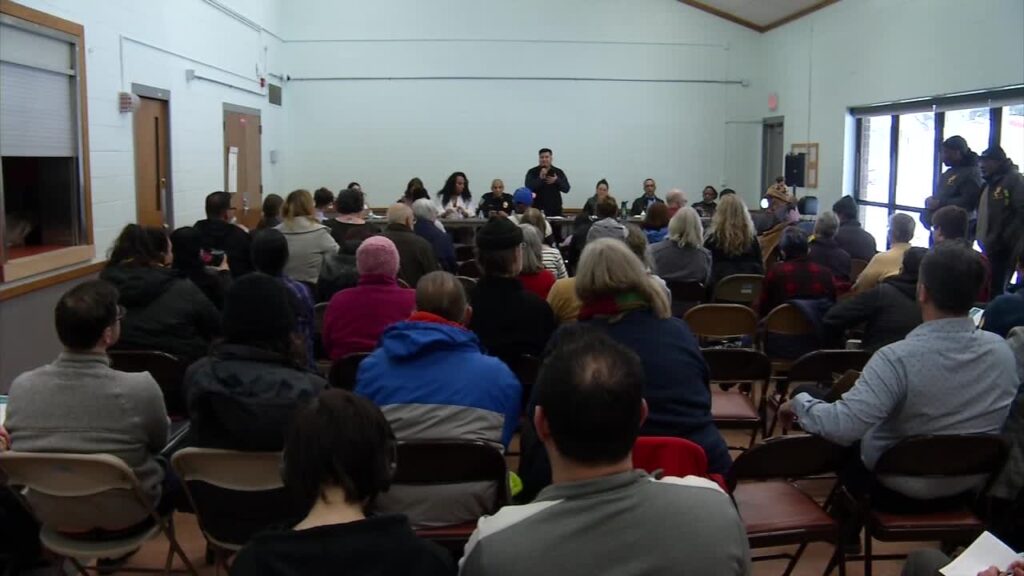Dozens pack Minneapolis community center to share transit safety concerns
[anvplayer video=”5168871″ station=”998122″]
Dozens of community members raised concerns about safety on Metro Transit buses and trains at a public listening session on Tuesday.
Ward 9 City Council Member Jason Chavez organized the meeting, which focused on three locations: Interstate 35W and Lake Street Station, Chicago-Lake Transit Center and Lake Street Midtown Station.
“My office has received multiple concerns of livability, safety and support for unhoused neighbors that need a lot of help right now in terms of finding stability,” Chavez said. “We’re here to listen, to learn.”
He joined Rep. Samantha Sencer-Mura, Minneapolis School Board Member Collin Beachy, Trans Equity Council Representative Naomi Badboy, Metro Transit Police Chief Ernest Morales III and several Metro Transit representatives at the Corcoran Park Recreation Center to hear from the public.
“I know that they have concerns, and they should, rightfully so,” Morales said.
About two dozen people spoke. Several described a growing drug problem on light rail trains and stations.
“That unidentified smell — those are opioids that’s being smoked, that’s fentanyl,” said Muhammad Abdul-Ahad, the executive director of T.O.U.C.H Outreach, a violence interruption group. “The last past four months, my team has responded to over 30 overdoses. Seven of them didn’t have a pulse. We brought all seven back due to the Narcan training that we all had.”
Other public safety concerns were raised as well. Last month, a transgender woman suffered a serious head injury when she was assaulted at the Lake Street Midtown Station.
“That’s where we have been focusing most of our activity in the last couple of days,” Morales said.

The Metropolitan Council approved a two-year, $6 million contract with a private security team to provide unarmed personnel at six stations, including the Lake Street Midtown Station.
Chief Morales views the measure as a stopgap to address an immediate need while his department faces an officer shortage.
“We think right now we have to address the public’s concerns. We have to get control of the situation,” said Morales. “We are underfunded and resourced in terms of manpower. What we want to do is supplement that with security because they’re available right now.”
Metro Transit Police have 108 full-time officers, plus another five that started training this week. There are 171 budgeted positions, which means they’re more than 60 officers short.
“We need law enforcement on every level to do their job,” Morales said, shifting focus to the court system. “When we make arrests — while I don’t want to criminalize addiction, what I would hope is that we can get them in a place where they can get long-term help and resolve this issue.”
Some community members called for more services for those struggling with substance use disorder, along with housing for those who use public transit as shelter.
“There’s housing that we need to do,” Chavez said. “Housing is one of the reasons there’s problems right now. There’s ways to create overdose prevention sites. Right now people are doing it on the trains, the stations because there’s nowhere to do it. Why don’t we create overdose [prevention] sites in Minneapolis so people can do it safely?”
The Ward 9 council member hopes stakeholders can meet again in about two weeks to develop a plan based on the community’s feedback.